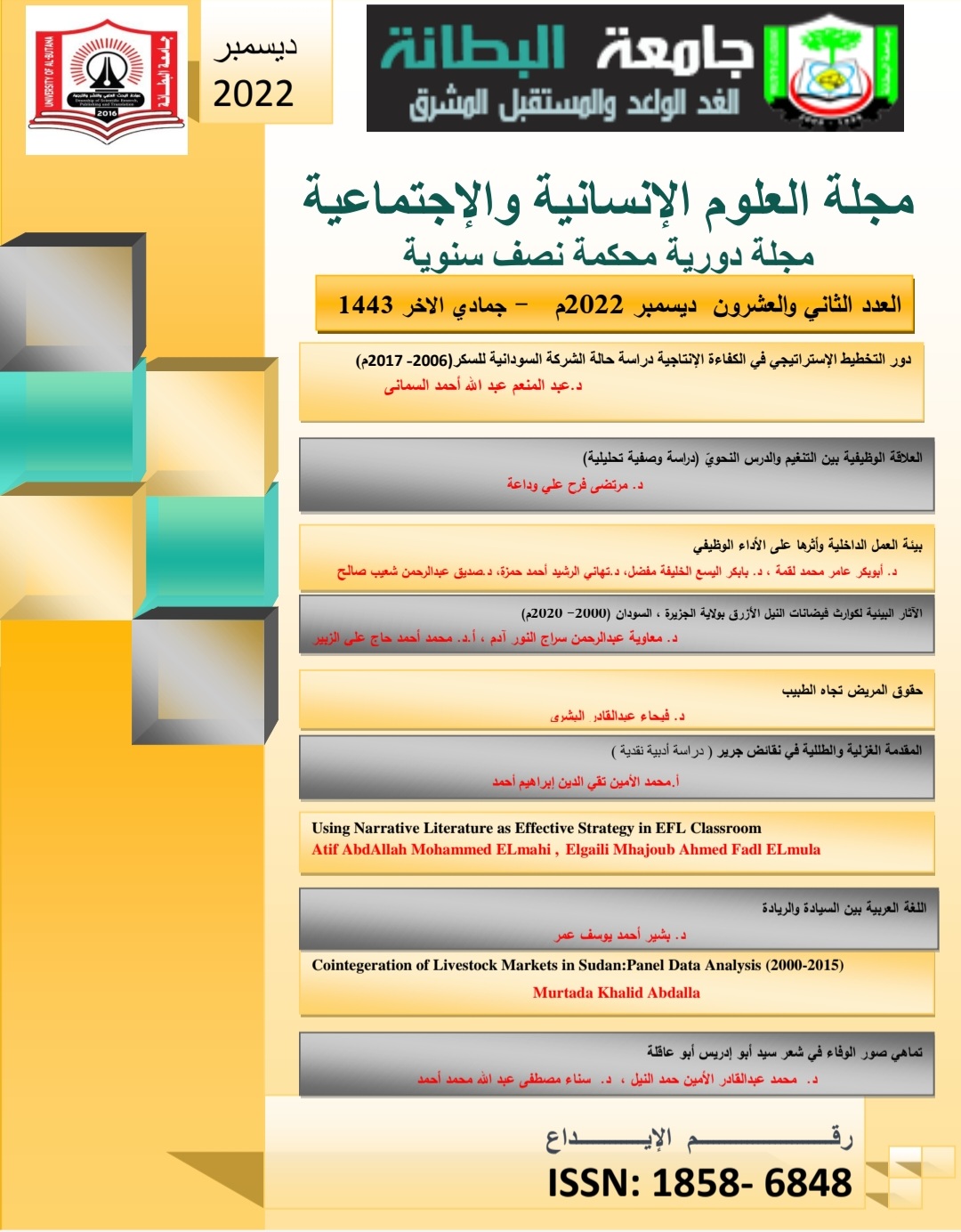اللغة العربية بين السيادة والريادة
الملخص
All the nations consider language as their real peculiarity, identity,
and culture. So that they concerned with it to make it achieve its purpose
and maintain its existence among hundreds of languages and dialects.
Thus, Arabic language has been distinguished from the rest by a number
of characteristics and potentialities, the thing made it the first among the
rest. This is not for loftiness or holiness but for its subjective, potential
and self-features. This study aimed to bring out characteristics of Arabic
language and identify its place among the other world languages; bring
into view the effect of Quran on it; and find out the challenges that face it.
The researcher followed inductive analytical method and achieve many
results, some of them are as follows: according to the view point of a
number of researchers, Arabic language is the most time-honored
language; it has kept all its features and genetics since its genesis, why
not that and the holy Quran has guaranteed eternity and survival to it
which is in the verse as Allah says, " indeed, it is We who sent down the
Quran and indeed, We will be its guardian"; Arabic language is
particularized from its peers by mechanic, structural and vocal
characteristics; it has a large vocabulary in which every concept finds its
choice of expression; and Arabic language is capable of confronting all
the confrontations that are set by its ambushers, the thing enabled it to
obtain the dominance and pioneering among the other languages. The
study recommends making Arabic language as the only source for
education, dealings, and means of interaction in all Arab states well as
their interaction with other nations. This is to actualize language
magnitude in spread and expansion throughout the world.
